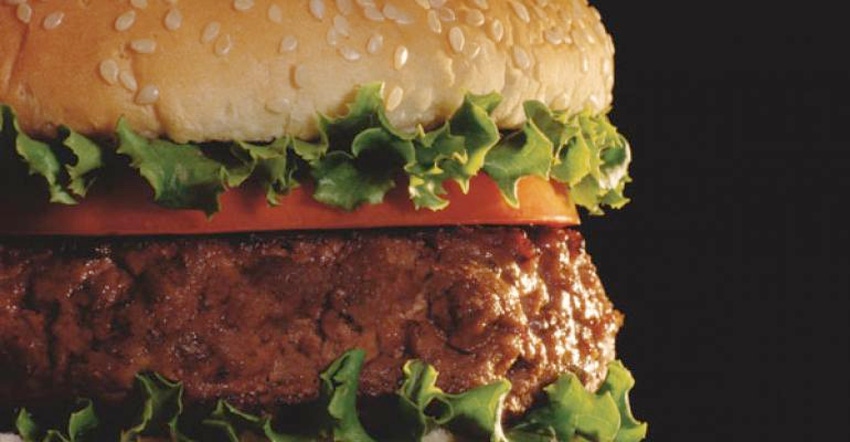Coalition calls for transparency in IARC reporting
When IARC classified beef as carcinogenic, it ignored a large body of evidence that says otherwise. A new coalition is demanding reform for IARC’s research and classification system that could avoid issues like this in the future.
February 1, 2018

A few years ago, you may recall how the International Agency for Research on Cancer (IARC) made the dangerous conclusion that red meat increases cancer risk. Of course, one had to take that announcement with a grain of salt — first, because an entire library of research presented to the committee that said otherwise was largely ignored; and second, because IARC also concluded that following a review of 900 items, including coffee, sunlight, air and night shift work, only one was found to “probably” not cause cancer. By the one, the single item that IARC cleared was a chemical in yoga pants. Insert eye roll here.
READ: Scientists cry foul over IARC red meat-cancer conclusions
Following IARC’s announcement that beef was “carcinogenic to humans,” many scientists were quick to criticize the classification. What’s more, after feeling the push back for putting beef in the same class as cigarettes, it was revealed that the World Health Organization wasn’t exactly confident in this classification.
Commenting at the time the initial report was released, Steve Kay, for Cattle Buyers Weekly, said “WHO is eating a little humble pie. It offers what it calls a follow up and clarification on its recommendations regarding meat consumption. This comes after the global media uproar over the International Agency for Research on Cancer (IARC) report on red and processed meats. The WHO says there are shortcomings with the IARC’s classifications which allow the results to be misinterpreted. The WHO has also distanced itself from comments made by IARC panel members earlier in the week saying that processed meats should be avoided. The WHO will further look at the place of processed meat and red meat within the context of an overall healthy diet in 2016, it says.”
READ: WHO backpedals on red meat/cancer link
As a result of some of IARC’s more outlandish conclusions, in 2017 the American Chemistry Council (ACC) launched the Campaign for Accuracy in Public Health Research (CAPHR). The campaign focuses on education and outreach initiatives to promote credible, unbiased and transparent science as the basis for policy decisions and to reform IARCs’ Monographs Program.
According to a recent press release, “CAPHR has been steadfast in our efforts to shine light on the deficiencies, misinformation and consequences associated with the Monographs Program, which evaluates cancer hazards and produces reports, or Monographs, on its findings. We’ve been encouraged by the increased scrutiny into IARC’s carcinogenic classification that has evolved over the past year.
“One thing is clear: the public, regulators and organizations alike are becoming increasingly concerned and weary over the alarmist headlines generated by the Monographs Program’s lack of transparency and balance in assessing cancer hazards.”
READ: 3 ways to disprove IARC on red meat & cancer link
To mark the one-year anniversary of the launch of this campaign, a CAPHR Coalition has been established, which brings together a diverse group of industry partners and businesses that would like IARC to reform its programming to consider a substance’s risk, not just hazard; to require reliance on weight of evidence; to establish standard criteria for selecting studies; to increase transparency and utilize input from stakeholders; to explain conflicts of interest; and to improve Monograph releases.
“Manufacturers, governments, and individuals around the world are prioritizing transparency as a means to build trust, promote inclusion and ensure smart policies,” said Linda Dempsey, vice president of international economic affairs policy at the National Association of Manufacturers (NAM), a CAPHR Coalition partner, in the press release. “IARC’s Monographs Program, however, is blatantly pursuing a policy of secrecy and exclusion, prohibiting participants and observers from discussing how Monograph conclusions are reached, even threatening lawsuits against those who reveal information about the proceedings. These systematic efforts to conceal information and intimidate those with concerns directly contradict the values of IARC, the World Health Organization, and the member states that support their work.”
I appreciate the work of the ACC, CAPHR and the Coalition in demanding honest reporting, transparent research and honest conclusions that will responsibly guide public policy to improve human health and reduce our cancer risk.
Concluding that a nutrient-rich food like beef is similar to the addicting and damaging effects of cigarettes is not only ridiculous, but it’s incredibly irresponsible. A reform in IARC’s methodology and classification system is needed, and in the meantime, the cattle industry will continue to debunk the erroneous and damaging beef and cancer association.
The opinions of Amanda Radke are not necessarily those of beefmagazine.com or Farm Progress.
About the Author(s)
You May Also Like




.png?width=300&auto=webp&quality=80&disable=upscale)
